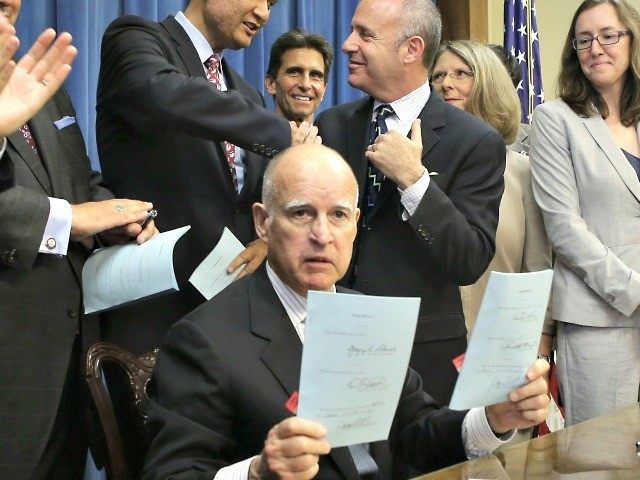Proponents of Proposition 30, which temporarily raised tax rates in California, are pressing Gov. Jerry Brown to continue with the tax increases even though the state now has ample black ink and revenues are expected to climb even without the additional taxes.
California teachers fought hard for the sales and income tax increase initiative in 2012, arguing it was necessary because schools were ignored during the Great Recession. The initiative won easily with 55% of Californian voters pulling the ballot in favor of it. Now, the teachers don’t want to reverse course by lowering taxes to pre-initiative rates. Moreover, they realize that they may not have Jerry Brown in their camp any more.
According to the Contra Costa News, the somewhat fiscally conservative Brown could fall on the same side as a coalition of Republicans, anti-tax zealots and business people who think that in the long run lower tax rates will promote a more robust economy for the Golden state.
Bill Whalen, a veteran GOP strategist, who is now a research fellow at Stanford’s Hoover Institution, commented that “Politicians sometimes find themselves in strange positions when the lines of battle shift — and clearly this is one of those times.”
Brown stated unequivocally in January, “I said that’s a temporary tax,” when asked about the measure at a Sacramento news conference.
Not all agree that the tax should be temporary. “Ninety-five percent of the increase in income since the depths of the Great Recession has gone into the hands of top earners. That’s who Proposition 30 asks to pay a little more,” said Fred Glass, a representative for the California Federation of Teachers. “They can well afford it, and the rest of the state needs it.”
Jack Pitney, a political expert at Claremont McKenna College, postulated that Brown may actually believe that giving lawmakers more money will result in more unbridled spending. “I think he sees himself as a check on the Legislature,” he said. “He’s also acutely aware of what happened to Gray Davis when the Legislature had too much money to spend.”
In 2003, right before the-dot com bubble broke, Davis gave in to pressure from state employee unions to increase pension benefits, which helped create the immense unfunded pension liabilities that exists in California today.
On the other hand, Pitney speculates that Brown may be just a man of his word and his motivations aren’t political. “You can never discount the possibility that politicians mean what they say,” Pitney said. “It happens every now and then.”

COMMENTS
Please let us know if you're having issues with commenting.